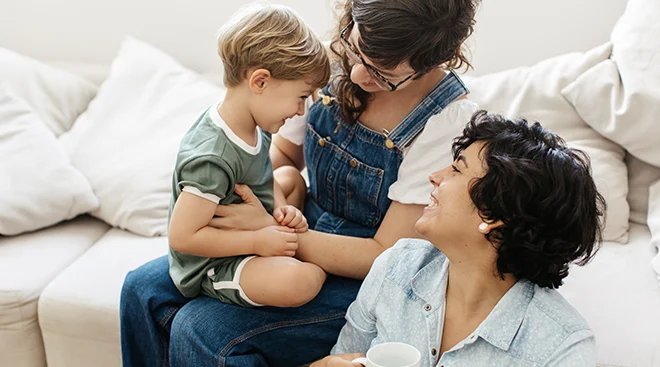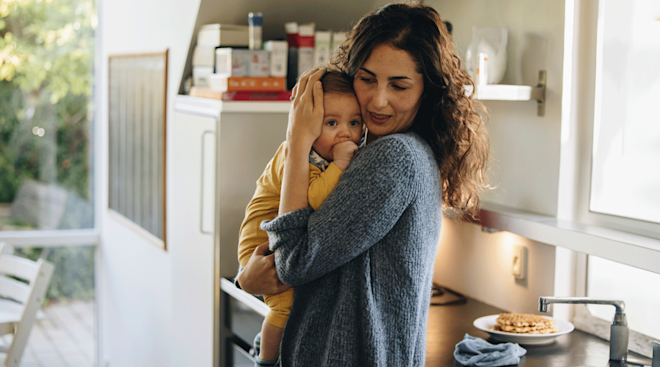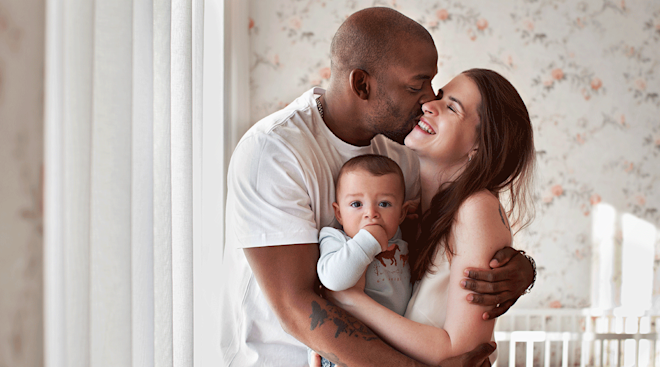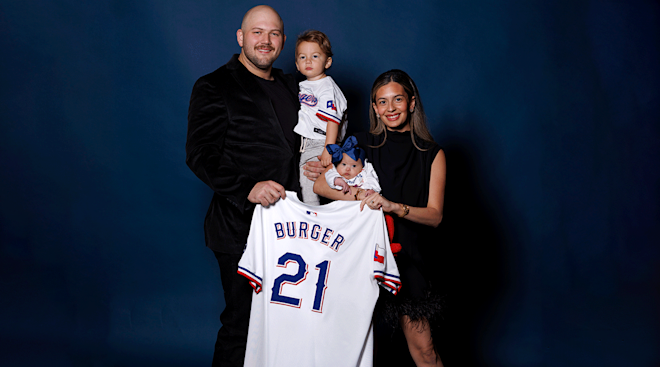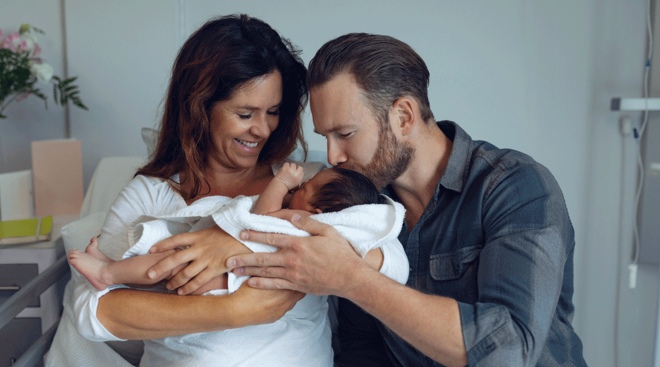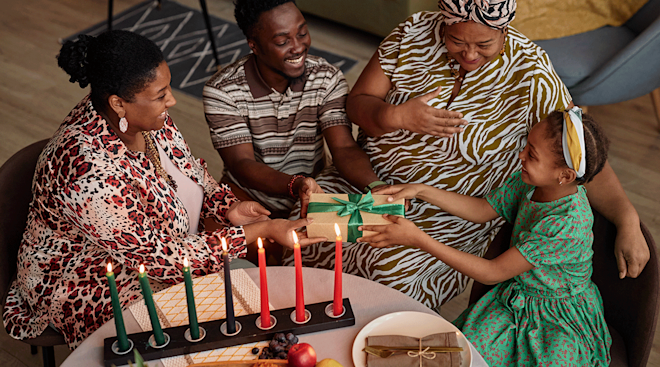A Guide to Your Legal Rights as an LGBTQ+ Parent
Family planning can be complicated for prospective LGBTQ+ parents. While the definition of what constitutes the makeup of a family has thankfully evolved and broadened, legal protections haven’t quite caught up with the needs of everyone who wants to have or raise children. It can be a confusing process for those in the LGBTQ+ community—which is why it’s so important to educate yourself about your options and rights. Two major factors must be considered before you start a family: your path to parenthood and the laws in the state you reside. Below, everything you need to know about navigating this complex network of laws.
There are various options for hopeful LGBTQ+ parents—but whatever path to parenthood you choose, there may be some legal considerations to keep in mind. Here’s what you need to know.
Adoption basics for LGBTQ parents
According to the United States Census Bureau, adoption is the most common path to parenthood for LGBTQ+ parents. In fact, same-sex couples are more likely to adopt than opposite-sex couples. And while same-sex couple adoption is legal in the United States, there are hurdles to be aware of.
Every potential parent must pass a series of evaluations, including a home study. Unfortunately, LGBTQ+ people are often subject to bias and stigma that keep them waiting for a child. “What that could look like is an agency accepts applications from single people, same-sex and trans folks, but there is an unspoken hierarchy,” explains Ellen Kahn, senior director for the Human Rights Campaign Foundation. Some placement workers prefer placing a child with what they consider an ideal family—which is typically a heterosexual couple.
Then there are state laws that actually permit discrimination against the LGBTQ+ community. “When it comes to adoption, some states’ gay and lesbian adoption laws impede married LGBTQIA+ couples from adopting solely based on the grounds of the adoption institutions’ anti-LGBTQ+ religious rights,” explains David Clark, a Michigan attorney. “Despite checking all the important boxes, same-sex couples will typically have a far harder time being approved for adoption.” For example, in Tennessee, a controversial law allows private adoption and foster care agencies to receive taxpayer funds even if they exclude LGBTQ+ prospective parents. Other states have similar laws on the books, according to the Movement Advancement Project.
If you’re single, know that it’ll generally be harder for you to adopt than it would be for a couple, warns Amira Hasenbush, a family law attorney in California. But there is recourse. If you feel as though you’re being discriminated against because of your sexual orientation or gender identity, contact a lawyer who specializes in LGBTQ+ family law. This person will inform you of your rights and how to protect yourself.
What you can do: The roadblocks can be frustrating, but there are steps you can take to advocate for yourself on your adoption journey. Organizations, such as the Human Rights Campaign, work with adoption agencies and offices across the country that have a commitment to inclusive practices. Start your search with one that has the HRC seal of recognition. If there isn’t one in your area, reach out to one in another town or even state for guidance and support.
Assisted reproductive technology for LGBTQ+ parents
If sexual intercourse isn’t an option for creating your family, assisted reproductive technology (ART) or artificial insemination may be a part of your plan. It involves methods like in vitro fertilization (IVF) or intrauterine insemination (IUI). While these methods can lead to a pregnancy, there are no guarantees—and they can be incredibly expensive. Insurance coverage is also tricky; since infertility isn’t usually the reason same-sex couples choose this route, it can be nearly impossible to get even some of it covered. Paying thousands out of pocket can be cost-prohibitive for LGBTQ+ people.
What you can do: Find out if your employer offers equitable family formation benefits; large companies often do. Check out HRC’s corporate equality index for more information.
Using a sperm or egg donor
Donor rights are handled state-by-state. There’s no federal blanket rule that can apply to everything, so checking local law is key. “The standards and requirements are often different for egg, sperm and embryo donations because the need for medical intervention and the number of people involved varies,” says Hasenbush. She explains that most states require a written agreement and medical intervention. In California, a sperm donor can donate without a doctor, using at-home insemination that is not intercourse, if there’s a written agreement. “In other states, cutting off the rights of a known donor can be complicated,” Hasenbush adds.
What you can do: “Generally, LGBTQ+ parents should get a judgment from a court affirming their parentage and affirming that their donor is not a parent, or terminating the donor’s rights in order to protect their families,“ Hasenbush says. If an anonymous donor is used, there’s no need to get a donor agreement severing ties.
Similarly, if you’ll be using a surrogate, you’ll want to take legal steps to protect your parental rights, notes Surrogate.com.
Unfortunately, growing your family may take more time, more effort and more money as a hopeful LGBTQ+ parent. Ensuring your ducks are in a row is of the utmost importance. That starts with understanding legal implications and securing your parental rights. Here are some steps to help you get started.
Consult a family lawyer
Love may make a family, but the legal side of the equation feels a whole lot less flowery. You want someone who can help you navigate the hurdles and answer your questions throughout the process. The LGBTQ+ Bar has a directory of lawyers who specialize in LGBTQ+ family law.
Don’t sleep on second parent adoption
If you have a biological link to your child but your partner does not, you’ll need to ensure their parental rights. Once baby is born, consider a second parent adoption for the non-biological parent. Don’t skip this step. It will ensure both parents have the right to make medical decisions or add the child to health insurance policies. This will also end a known donor’s parenting rights without requiring a separate donor agreement.
It’s important to know that a birth certificate does not guarantee legal rights, even if both parents’ names are on the document. Legal adoption is the only way to guarantee parental rights.
Know your state laws
Where you choose to raise your family is also an important consideration for many would-be LGBTQ+ parents. Some states have a less inclusive climate. “We are seeing renewed anti-LGBTQ+ behaviors and tactics,” warns Kahn, who’s also a parent herself. “In Florida, there are dozens and dozens of bills that are meant to shut down conversations in K-12 schools about LGBTQ+ people and experience. So families like mine wonder ‘what does this mean?’”
All of this adds up to extra worry for LGBTQ+ parents. Of course, even if you live in a progressive area with pro-equality candidates and equality-centered laws on the books, there are issues of concern. “You still know that you are in a minority,” explains Kahn. “There’s an awareness that you might be parenting in a bit of a fishbowl at times. There’s worry of finding a preschool where the teachers aren’t going to say something that doesn’t feel welcoming. Or find a pediatrician’s office that is inclusive and welcoming of all families.” In other words, the initial legal hurdles are just the beginning.
The good news is that greater protections are on the horizon. The Equality Act would update federal law to include protections for Americans based on sexual orientation and gender identify in every aspect of daily life. The bill has already passed Congress but is still pending a Senate vote.
Don’t be daunted by the challenges. You can have the family you dream of. “You can bring children into the world and raise children,” assures Kahn. “You do not have to give up on that vision. And, you know, our kids are doing great. Our kids are thriving, and our families are amazing and awesome.”
About the experts:
Amira Hasenbush is an attorney and the founder of All Family Legal, a family-law practice in California. She has a deep understanding of the special needs that may be involved for LGBTQ+ families.
Ellen Kahn is the senior director of programs and partnerships at the Human Rights Campaign Foundation. She provides national leadership and expertise in public education and advocacy efforts on behalf of LGBTQ+ youth and families.
David Clark is a Michigan-based trial attorney with more than 35 years of experience in personal injury and family law.
Plus, more from The Bump
Navigate forward to interact with the calendar and select a date. Press the question mark key to get the keyboard shortcuts for changing dates.
































